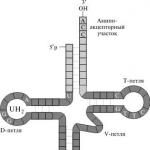Where is the predicate? What is a "predicate"? Types of predicates
However, not everyone fully understands what this mysterious definition means. Let's try to fill the gaps in our knowledge and understand in detail, predicate and subject. What parts of speech can they be expressed by? And in what cases are they separated on a letter such as a dash?
Definition
To understand what a predicate and subject are, you need to understand their definitions.
Subject Who? or What? and denoting the subject being discussed in the sentence. Warm weather has settled throughout the region. In this example, the word “weather” acts as the subject (that is, the subject of speech), and the grammatical features that the other main member of this sentence, the predicate, will receive depend on it.
Predicate- this is one of the main members of the sentence, answering the questions: what to do? what? what's happening? who it(or what's happened) item? It denotes an action performed by the subject of speech, its state or attribute. In the above example, the predicate is the verb " established". From the subject he received such features as the singular number and the feminine ending.

Ways of expressing subject and predicate
This is one of the most difficult issues in the topic described. After all, in order to understand what a predicate and subject are, you need to be able to correctly define them in speech.
Subject
The subject of a sentence can be expressed by the following parts of speech:
- Noun or pronoun (in I. p.). The weather was fine.
- Adjective, numeral or participle (in I. p.). Seven do not wait for one.
- Composite structures:
- numeral + noun: A lot of people crowded into the room;
- adjective + preposition + noun: The best athlete did not start the competition;
- pronoun + adjective or participle: Something light rustled in the air;
- noun + preposition + noun: Elena and her husband came to visit friends.
- Infinitive. Smoking is harmful to health.

Predicate
The predicate in a sentence can be expressed by the following parts of speech:
- Verb (simple or compound). Marina dreams of becoming a biologist.
- Noun. Victor is my only love.
- Adjective or participle. How rich is the nature of the Ural Mountains!
Dash between subject and predicate
The table below clearly shows in which cases the main terms
Sentences are separated in writing by this punctuation mark.
Cases when a dash is placed | Examples |
noun in I. p. - noun. in I. p. | My years are my wealth |
noun in I. p. - verb. undefined f. | The main task for newlyweds is to learn to understand each other |
verb undefined f. - verb undefined f. | Smoking is harmful to health |
verb undefined f. - noun in I. p. | Loving is an art |
noun in I. p. - idiomatic expression | My friend is a shirt guy! |
quantity number - quantity number | Seven six - forty two |
quantity number - noun in I. p. | Eight hundred meters is the length of the stadium running track |
noun in I. p. - quantity. number | The depth of our pool is four meters |
You should remember what a predicate and subject are, and also that when changing places in a sentence, they change their functions. My best friend is Julia. Julia is my best friend.
Predicate- this is the second main member of the sentence, which most often agrees in number, gender and person with the subject and answers the questions: what does the subject do? What is it like? What is it? What happens to the subject?
According to their composition they distinguish three types of predicates:
- Simple verb predicate;
Simple verb predicate can be represented by the following parts of speech and their forms:
- Verb in any of the existing moods:
Sister came in into the room. Sister included into the room. Sister will come in into the room. Sister would come in into the room. Come in!
- Independent indefinite form of the verb (infinitive):
Live for the Motherland serve.
- Verb + modal particles “let”, “yes”, “let”, “as if”, “let’s”, “hardly”, “almost” and others:
Let him clean up away.
I I almost fell hanging from the railing.
In the air as if it smelled freshness.
- Interjective verb forms, which represent the name of actions: “knock”, “bang”, “grab”:
And at that moment the cat grab butterfly!
- Predicate-phraseologism:
He again kicks the bulldozer.
Errors in using a simple predicate in a sentence.
- Not all predicates consisting of more than one word are compounds. For example, future tense form of the verb, formed using the appropriate form of the verb "be", is a simple verb, not a compound predicate!
I I'll get up earlier.
Train now will be coming half an hour earlier. - You can often encounter errors and difficulties when determining the type of predicate. Particular difficulties arise when we need to determine what is in front of us: a predicate-phraseological unit or a compound nominal predicate. To do this without a hitch, it’s worth remembering to know two simple rules:
The predicate idiom can be replaced with one word:
to have meaning - to mean, to give an order - to order, to win - to win, etc.
In a compound nominal predicate, the verb part can be replaced by a connective "be". This cannot be done in a predicate-phraseological unit:
Mom hung her nose. - Simple predicate-phraseologism.
He lay there tired. - He was tired. (Compound nominal predicate)
She sat sad. - She was sad. (Compound nominal predicate)
Scheme for parsing a simple verbal predicate.
- Predicate type.
- Conjugated verb form.
An example of parsing a simple predicate.
The company is doing slowly but surely walked uphill.
We walked uphill- a simple verbal predicate, predicate-phraseologism, the verb has the form of the past tense, indicative mood.
In this chapter:
§1. The main parts of a sentence are the subject and the predicate.
Subject
The subject is the main member of the sentence, independent of other members of the sentence. The subject answers the questions of the IP: who? What?
The subject of a sentence is expressed in different ways.
What is the subject expressed by?
The subject can be a word or phrase.
Most often the subject is expressed:
1) noun: mother, laughter, love;
2) words that have the function of a noun: nouns derived from adjectives or participles: patient, manager, greeter, ice cream, dining room;
3) pronouns: we, no one, anything;
4) numerals: three, five;
5) indefinite form of the verb: Smoking is harmful to health;
6) a phrase, if it has the meaning:
a) togetherness: husband and wife, duck and ducklings, me and my friend;
b) uncertainty or generality: Something unfamiliar appeared in the distance. One of the guests closed the window;
c) quantities: 2 million people live in the city;
d) selectivity: Any of them could become the first. Most students passed the test;
e) phraseological unit: The white nights have come.
Predicate
Predicate- this is the main member of the sentence, denoting what is said about the subject, which is the subject. The predicate depends on the subject and agrees with it. It answers various questions: what does the object do? what's happening to him? what is he like? who is he? what it is? what is the subject? All these questions are variations of the question: what is being said about the subject? The choice of a specific question depends on the structure of the sentence.
The predicate contains the most important grammatical characteristic of a sentence: its grammatical meaning.
Grammatical meaning- this is the generalized meaning of a sentence, which characterizes its content in terms of two parameters:
- reality-irreality,
- time.
Reality-irreality expressed by the mood of the verb.
- Verbs in the indicative mood are characteristic of statements that reflect the real situation: It’s raining, It’s getting light.
- Verbs in the imperative and conditional moods are characteristic of sentences that reflect not a real, but a desirable situation. Don't forget your umbrella! I wish it didn't rain today!
Time- an indicator of the correlation of the situation with the moment of speech. Time is expressed by verb forms of present, past and future tense.
Simple and compound predicate
The predicate in two-part sentences can be simple or compound. Compounds are divided into compound verbal and compound nominal.
Simple predicate- this is a type of predicate in which the lexical and grammatical meanings are expressed in one word. A simple predicate is always a verb. It is expressed by a verb in the form of one of the moods. In the indicative mood, verbs can be in one of three tenses: present - past - future.
He knows poetry by heart.
indicative mood, present time
He knew the poems by heart.
indicative mood, past time
He will learn poetry by heart.
indicative mood, bud. time
You will learn these verses by heart.
imperative mood
In a circle you would learn poetry by heart.
conditional mood
Compound predicate- this is a type of predicate in which the lexical and grammatical meanings are expressed in different words.
If in a simple verbal predicate the lexical and grammatical meanings are expressed in one word, then in a compound predicate they are expressed in different words. For example:
Suddenly the baby stopped singing and started laughing.
He stopped singing and started laughing - compound predicates. The words sing, laugh call an action, while expressing lexical meaning. The grammatical meaning is expressed by the words: stopped, started
Compound predicates are verbal and nominal.
Compound verb predicate
A compound verbal predicate is a predicate consisting of an auxiliary word and an indefinite form of the verb. Examples:
He finished working.
I want to help you.
Auxiliary words are divided into two groups:
1) verbs with the meaning of the beginning-continuation-end of an action, for example: start, finish, continue, stop, stop;
2) verbs and short adjectives with the meaning of possibility, desirability, necessity: be able, able, want, want, wish, strive, try; glad, ready, must, obliged, intends.
In a compound verbal predicate, auxiliary words express the grammatical meaning, and the indefinite form of the verb expresses the lexical meaning of the predicate.
If the auxiliary word is a short adjective, then it is used with a connective. The connective is the verb to be. Here are relevant examples with the copula in the past tense:
I was so glad to meet you!
In the present tense the word is is not used, it is omitted: the connective is zero, for example:
I'm so glad to meet you!
In the future tense, the connective be is put in the future tense. Example:
I'll be glad to meet you.
Compound nominal predicate
A compound nominal is a predicate consisting of a linking verb and a nominal part. Linking verbs express the grammatical meaning of the predicate, and the nominal part expresses its lexical meaning.
1. The linking verb to be expresses only grammatical meaning. Yesterday she was beautiful. In the present tense the copula is zero: She is beautiful.
2. Linking verbs become, become, become, appear, be considered, appear, be called, introduce themselves: The house from afar seemed like a dot.
3. Linking verbs with the meaning of movement or location in space: come, arrive, sit, lie, stand: The mother returned from work tired. The mother sat thoughtful, sad.
In all these cases, linking verbs can be replaced by the verb to be. The sentences will be synonymous, for example:
The mother sat thoughtful, sad. Synonymous: The mother was thoughtful, sad.
He was considered the most talented of us. Synonymous: He was the most talented of us.
With such a replacement, of course, all the nuances of meaning are not conveyed. Therefore, the language offers various linking verbs that emphasize different shades of meaning.
Combinations of linking verbs with auxiliary words are possible: She dreamed of becoming an actress.
The nominal part of a compound nominal predicate
The nominal part of a compound nominal predicate is expressed in Russian in different ways, and, paradoxically, not only by names. Although the most common and characteristic is the use of names as the nominal part of a compound nominal predicate: nouns, adjectives, numerals. Naturally, names can be replaced by pronouns. And since the role of adjectives and participles is similar, participles can also appear along with adjectives. Adverbs and adverbial combinations are also possible in the nominal part. Examples:
1) noun: Mother is a doctor., Anastasia will be an actress.,
2) adjective: He grew up strong and handsome.,
3) numeral: Twice two is four.,
4) pronoun: You will be mine., Who was nobody will become everything (“International”),
5) participle: The essay turned out to be lost., The daughter was completely cured.,
6) adverb and adverbial combination: The shoes were just right. The trousers were just right.
The nominal part can contain not only individual words, but also syntactically indivisible phrases. Examples:
She ran into the room with a cheerful face.
She sat with thoughtful eyes.
It is impossible to say: She ran in with a face., She sat with eyes., because the phrases with a cheerful face and with thoughtful eyes are syntactically indivisible - this is the nominal part of a compound nominal predicate.
Test of strength
Find out your understanding of this chapter.
Final test
Which parts of the sentence are considered the main ones?
- subject and object
- definition, circumstance and addition
- subject and predicate
Can the subject be expressed by words derived from adjectives or participles: manager, sick, in love?
Can the subject be expressed in phrases, for example: we are with friends?
What is the subject in the sentence: Any of you can prepare for the Unified State Exam and pass it successfully.?
- any
- any of you
What characteristics are included in the grammatical meaning of a sentence?
- reality - unreality and time
- type and time
Is it true that a simple verbal predicate is a predicate whose lexical and grammatical meaning is expressed by one verb?
Is it true that a compound predicate is a special type of predicate whose lexical and grammatical meanings are expressed in different words?
I can't help you.?
- simple verb
- compound verb
- compound nominal
What is the predicate in the sentence: He was always considered serious.?
- simple verb
- compound verb
- compound nominal
What is the predicate in the sentence: Two by two is four.?
- simple verb
- compound verb
- compound nominal
The grammatical basis of the sentence. The concept of the main members of a sentence
The grammatical basis of a sentence consists of a subject and a predicate.
The grammatical basis expresses the grammatical meanings of a sentence. They are associated with the meanings of moods and tense of the predicate verb.
The troops are moving to the front.
(The action actually happens and takes place in the present tense).
Yesterday he came to see us.
(The action actually happened, but in the past tense).
You should talk to your mother, Ivan!
(The action is not realized in reality, but is desired by the speaker).
The subject and predicate are called the main members of a sentence because all the minor members in a sentence directly or indirectly extend them.
Let us show the dependence of the minor terms on the main ones in the following diagram:
The astonished Varenukha silently handed him an urgent telegram.
Subject as a member of a sentence. Subject expression forms
The subject is the main member of the sentence, which denotes the subject of speech and answers the questions of the nominative case who? or what?
The subject in Russian can be expressed in different ways, sometimes in “unusual” forms. The following table will help you correctly determine the subject.
Basic ways of expressing the subject.
| Part of speech in subject position | |
| Noun in i. P. | Language reflects the soul of the people. |
| Pronoun in i. P. | He left. Who was there? This is right. This is my brother (for questions: who is this?) The house, which was barely standing, belonged to a forester. (Here, pay attention to the subject of the subordinate clause.) The sparks that flew from the fire seemed white. (Here, pay attention to the subject of the subordinate clause.) Someone has come. Everyone fell asleep. |
| Infinitive | Being honest is half the battle. To understand means to sympathize. Smoking is harmful to health. |
| Combination of words (one of which is in i.p.) | He and I visited there often. Two clouds float across the sky. |
| A combination of words without and. P. | About an hour passed. |
Predicate as a member of a sentence. Types of predicate
The predicate is the main member of a sentence, which is connected with the subject by a special connection and has a meaning expressed in the questions what does the subject of speech do? what's happening to him? what is he like? what is he? who is he? and etc.
The predicate in Russian can be simple or compound. A simple (simple verbal) predicate is expressed by one verb in the form of some mood.
Compound predicates are expressed in several words, one of them serves to connect with the subject, while the others carry the semantic load. In other words, in compound predicates, the lexical and grammatical meanings are expressed in different words.
(Verb was Colonel
(Verb started serves to connect with the subject, to the word work the semantic load of the predicate decreases.)
Among compound predicates, a distinction is made between compound verbal and compound nominal predicates.
Learn more about predicate types. Simple verb predicate
A simple verbal predicate is expressed by one verb in the form of some mood.
It can be expressed by the following verb forms:
| Present and past tense forms of the verb. |
|
| Future tense form of the verb. | |
| Forms of the conditional and imperative mood of the verb. |
We emphasize that in the case of you will be expected tomorrow, the simple verbal predicate is expressed by the compound form of the future tense of the verb to wait.
Compound verb predicate
A compound verbal predicate consists of two components - an auxiliary verb, which serves to connect with the subject and expresses the grammatical meaning of the predicate, and an indefinite form of the verb, which expresses its main lexical meaning and carries the main semantic load.
(Here began - this is an auxiliary verb, and gnawing is an indefinite form of a verb that carries a semantic load.)
(Here I don’t want is an auxiliary verb, and to offend is an indefinite form of a verb that carries a semantic load.)
The role of an auxiliary verb can be a combination of some short adjectives (must, glad, ready, obligated, etc.) and an auxiliary verb-linking be in the form of one of the moods (in the present tense this linking is omitted).
(here the copula will be omitted).
So, let’s imagine the structure of a compound verbal predicate with the formula:
| CONDITION VERB SKAZ. = AUXILIARY VERB + UNDEFINED FORM |
Compound nominal predicate
A compound nominal predicate consists of two components: a copular verb that serves to connect with the subject and expresses the grammatical meaning of the predicate, and a nominal part that expresses its main lexical meaning and carries the main semantic load.
(Here the copular verb becomes, and the nominal part is expressed by the adjective viscous.)
(Here the copular verb will be, and the nominal part of the predicate is expressed by the noun handball player.)
Let us imagine the structure of a compound nominal predicate with the formula:
| CONDITION NAME SKAZ. = CONNECTION. VERB + NAME PART |
The nominal part of a compound nominal predicate is expressed by the following parts of speech: noun, adjective (full and short, various forms of degrees of comparison), participle (full and short), numeral, pronoun, adverb, word of the state category, verb in the indefinite form.
In the Russian language, at least four main types of one-part sentences can be distinguished.
Basic types of two-part sentences
| Form of expression of subject and predicate | Examples |
| The subject is expressed by a noun or a pronoun in the nominative case, the predicate - by a specific form of the verb. | |
| The subject is expressed by a noun or pronoun in the nominative case, the predicate - by a noun in the nominative case. In the past and future tenses, a linking verb appears and the case of the predicate changes to instrumental. | |
| The subject is expressed by the indefinite form of the verb or a phrase based on it, the predicate - also by the indefinite form of the verb. Particles are possible between the subject and the predicate, this means. | |
| The subject is expressed by the indefinite form of the verb or a phrase based on it, the predicate - by an adverb. | |
| The subject is expressed by the indefinite form of the verb or a phrase based on it, the predicate - by a noun in the nominative case or a phrase based on it. In the past and future tenses, a linking verb appears and the case of the predicate changes to instrumental. | |
| The subject is expressed by a noun in the nominative case, the predicate - by the indefinite form of the verb or a phrase based on it. A linking verb appears in the past and future tenses. | |
| The subject is expressed by a noun in the nominative case, the predicate - by an adjective or participle (full or short) in the nominative case. In the past and future tenses, a linking verb appears in the predicate. |
Knowing the main types of two-part sentences, it is easier to find grammatical basics in them.
Basic types of one-part sentences
| Typical form and meaning | ||
| Nominative (nominal) sentences | These are sentences where the main member is expressed by a noun or a pronoun-noun in the form of the nominative case. This main member is considered the subject and indicates that there is no predicate in the nominative sentence. Nominative sentences usually report that some phenomenon or object exists (are) in the present. | Large area in the city. Here's a bench. |
| Definitely personal proposals | The predicate is expressed by a verb in the 1st or 2nd person form. The ending of the verb in these cases clearly indicates the person and number of the pronoun (I, we, you, you). There is no need to use these pronouns as subjects. | |
| Vaguely personal proposals | The predicate is expressed by a verb in the 3rd person plural form (in the present and future tense) or in the plural form (in the past tense). In such sentences, the action itself is important, and the doer is either unknown or unimportant to the speaker, so there is no subject in them. |
|
| Impersonal offers | These are sentences in which there is not and cannot be a subject, since they denote actions and states that are thought to occur “by themselves,” without the participation of an active agent. According to their form, these sentences are divided into two types: with a verbal predicate and with a predicate - a word of the state category. The verbal predicate can be expressed by a verb in the 3rd person singular form (in the present and future tense) or in the neuter singular form (in the past tense). This role is usually played by impersonal verbs or verbs in impersonal use. The verb predicate can also be expressed by the infinitive form of the verb. | To avoid freezing, she captured jacket |
| In addition, the predicate in an impersonal sentence can be the word No. |
The owners are not at home. |
Secondary members of the sentence: definition, addition, circumstance
All members of the sentence, except the main ones, are called secondary.
The secondary members of the sentence are not included in the grammatical basis, but extend (explain) it. They can also explain other minor members.
Let's demonstrate this with a diagram:

According to their meaning and role in the sentence, minor members are divided into definition, addition and circumstance. These syntactic roles are recognized by questions.
Appreciated (to what extent?) high- circumstance.
Appreciated (what?) canvases- addition.
Canvases (whose?) his- definition.
Supplement as part of a sentence. Types of add-ons
A complement is a minor member of a sentence that answers questions of indirect cases (i.e., all except the nominative) and denotes the subject. The object usually extends the predicate, although it can also extend other members of the sentence.
I enjoy reading (what?) magazines. (Here the addition logs extends the predicate.)
Reading (what?) magazines is a fascinating activity. (Here the journals complement extends the subject.)
Objects are most often expressed by nouns (or words in the function of nouns) and pronouns, but can also be represented by an indefinite form of a verb and complete phrases.
During the campaign he shaved with (what?) a bayonet. (Here the complement bayonet is expressed by a noun.)
This is understandable only to connoisseurs of (what?) beauty. (Here the complement of beauty is expressed by an adjective in the role of a noun.)
And I will ask you (about what?) to stay. (Here the complement to remain is expressed by the infinitive form of the verb.)
He read (what?) a lot of books. (Here the addition of many books is expressed by a combination that is integral in meaning.)
Additions can be direct or indirect.
Direct objects belong to transitive verbs and denote the object to which the action is directly directed. Direct objects are expressed in the accusative case without a preposition.
I don’t know when I’ll see my relatives now (v.p.).
These furnaces used to melt steel (v.p.).
All other additions are called indirect.
Play the piano (p.p.).
I put the bread on the table (v.p. with a preposition).
I was forbidden to worry (expressed in the infinitive form of the verb).





